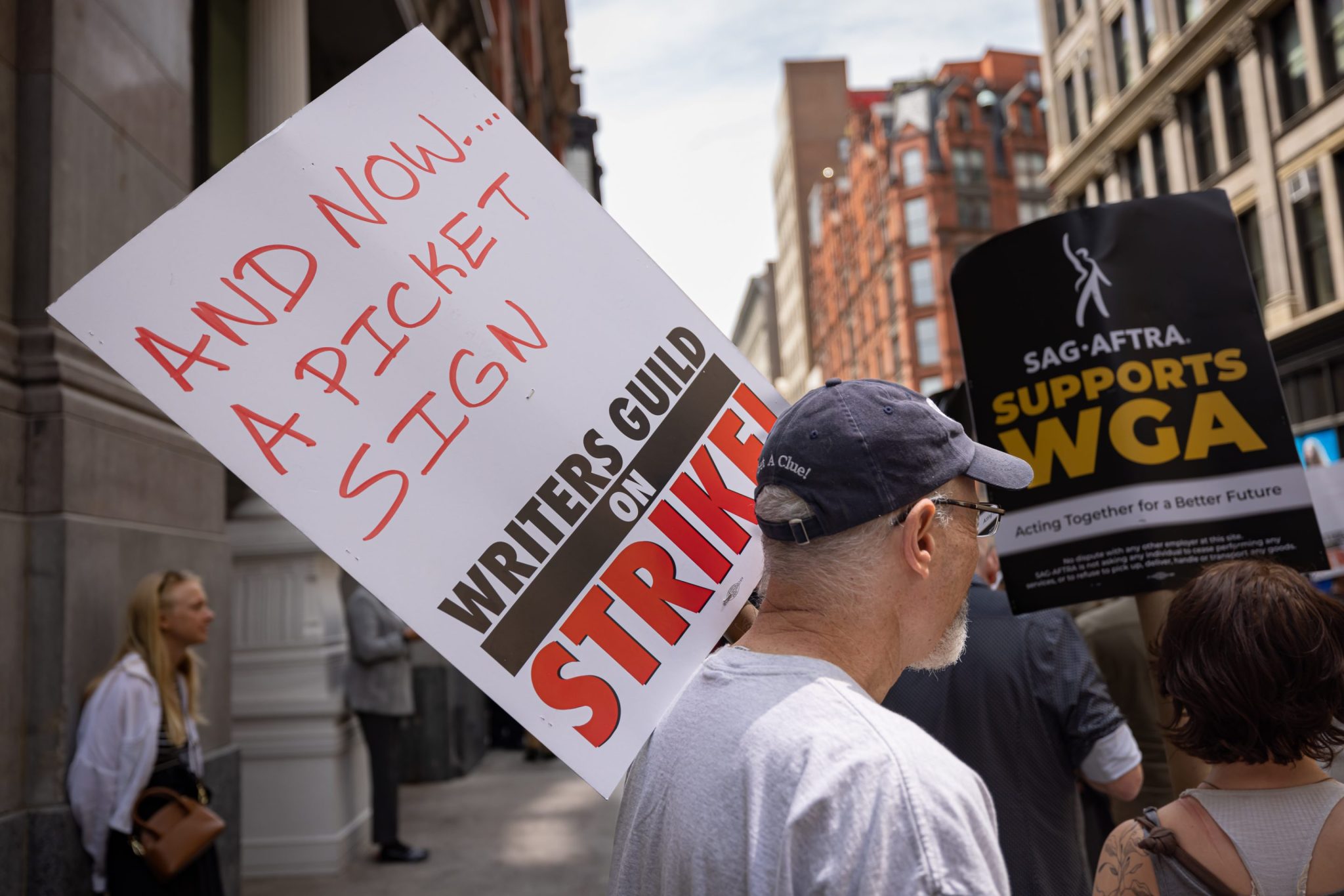
This month, the members of the Writers Guild of America, East and West, decided to strike for the first time in 15 years. Two weeks earlier, UPS employees represented by the Teamsters began negotiating with the company to replace an existing agreement set to expire at the end of July. If a new deal is not agreed to, these workers could strike as they did with great success in 1997, delaying the delivery of goods across the country. You may not think a Hollywood writer and a UPS driver or package handler have much in common, but the struggles they are currently facing highlight how the fight for labor rights is one that we must all engage in–regardless of what we do.
At the height of the COVID-19 pandemic, as Americans were isolated due to lockdown orders, streaming TV shows and movies provided an entertaining respite to help us forget our troubles while delivery drivers diligently ensured that vital goods reached their destination so that our economy could function.
A critical outcome of the pandemic has been the growing appreciation Americans developed for long-overlooked “essential” workers. We realized how important they are to help ensure the nation’s economy can operate smoothly. In turn, these “essential” workers–and workers of all stripes–gained a renewed sense of their value–and a determination to see to it that they were treated with dignity and afforded agency in their workplaces.
This revival of the labor movement led to the rise of historical organizing campaigns at Starbucks, Amazon, and among graduate student workers at colleges and universities, to name a few. And it is under this lens that we must see what is happening in the writer’s strike and the UPS negotiations. Even though all these workers do different jobs, their fight is the same.
Writers want increased pay, better health care and pension security, and better protections so that the writing profession does not become another “gig” job. Drivers at UPS are fighting for, among other demands, increased pay for part-time employees and the elimination of a second category of drivers who handle weekend deliveries so that all drivers are treated equally. It is striking that whether a person works in a writing room or a delivery processing floor, they are sick and tired of the gradual devaluation of their labor due to corporate greed and the rush for short-term profits.
These workers aren’t just fighting for better pay and benefits for themselves. They are also fighting to protect the future of their professions so that newer and younger workers get the same opportunities they got.
Throughout the revived labor movement, there is tremendous solidarity within and across unions. A recognition that their lots are tied together. In short, workers are united in ways unseen for decades.
Unfortunately, Washington is letting workers down when they need support the most. During the last Congress, the Senate failed to pass the PRO Act, repeating a 50-year pattern of failing to reform federal labor law to enhance the rights of workers to organize–including when Democrats controlled both chambers under four Democratic presidents from Carter to Biden. Even though there is a great deal of energy currently in the labor movement, labor law still heavily favors corporations and executives who want to stop workers from having their voice. The PRO Act would have rectified this by increasing penalties for violations of worker’s rights, empowering workers fighting to organize, and preventing employer interference to ensure free and fair union elections.
However, because of the filibuster, the Senate did not pass this much-needed legislation. Similarly, Congress last year failed to increase the budget of the National Labor Relations Board (NLRB) enough to meet current needs. The NLRB is the agency tasked with enforcing federal labor law and is often the last recourse for organizing workers who have had their rights violated by their employers. In this time of historic levels of worker activity, the NLRB does not have the budget necessary to ensure compliance with the law dedicated to upholding their rights. Employers know and understand that they will often not face any consequences for many of their violations because of the limited resources available to the NLRB.
Our elected representatives cannot let this stand. The right to organize and withhold labor is fundamental in any country that claims to be a democracy. But a right that cannot be vindicated is no right at all. The writers’ strike and the UPS negotiations are two current examples of why we need strong protections for workers’ freedom to organize and bargain collectively. Workers nationwide are standing up but have been let down for far too long in Washington. We must take bold action, pass the PRO Act, and fully fund the NLRB.
Workers are united, it’s now time for Washington to act.
Andy Levin is a Distinguished Senior Fellow at the Center for American Progress who has worked on labor issues during two terms in Congress, as Michigan’s Chief Workforce Officer, at the AFL-CIO, and in the Clinton Labor Department.
The opinions expressed in Fortune.com commentary pieces are solely the views of their authors and do not necessarily reflect the opinions and beliefs of Fortune.
More must-read commentary published by Fortune:
- Stanford researchers scoured every reputable study for the link between video games and gun violence that politicians point to. Here’s what the review found
- Is it smart to be a ‘stupid genius’ like Elon Musk?
- Why there will be no winners in the never-ending war between Disney and DeSantis
- America had the debate about paying its debt after the Revolution and the Civil War. Here’s why we reached the same conclusion twice







